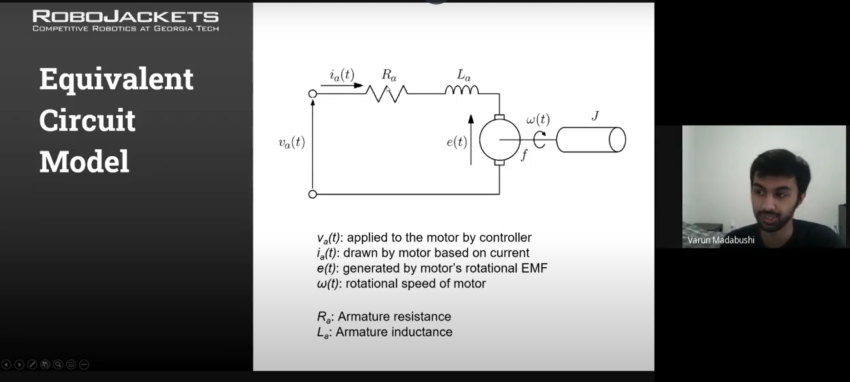by Dallas Downing
Every year RoboJackets gains over one hundred new members, all with varying degrees of experience with robotics. To get new members ready to contribute to the teams, RoboJackets hosts training sessions for the variety of disciplines that it spans, focusing on electrical, mechanical, and software. This past fall the list was expanded to include dedicated firmware training to complement the existing software and electrical training. Given the breadth and depth of the field of robotics, there are still many gaps in knowledge that can be taught to students, even with the topics covered in RoboJackets training and in the normal Georgia Tech curriculum. Spring training attempts to fill that knowledge gap by allowing members to host their own focused training sessions.
Spring training is the general name given to any training that happens in the spring semester. Without the regular training sessions of the fall, the spring is the perfect time for more experienced members to share their knowledge and experience. This flexibility lets spring training sessions take all kinds of forms. They could be a one-off session on a single, specialized topic or a few sessions covering the breadth of a topic. For example, Kyle Stachowicz, this year’s software training lead, hosted a series of lessons on more advanced topics in controls last year. Due to the remote nature of this year, trainers were able to organize and host sessions more easily. Today we’ll look at some of the sessions from this semester.
Varun Madabushi, robot lead for Hocki and former RoboRacing electrical lead, hosted a session on DC motor control. He noticed that the content was cut from ECE 4550 (Control System Design) due to remote classes, and the topic had to be cut from normal electrical training due to schedule constraints. Varun also noticed controlling DC motors is a critical aspect for high-tier performance of robots, particularly for RoboWresting and RoboRacing where high-speed controls are extra important. Thus the spring training session was born. It was a mix of a class-style lecture and a live demo using MATLAB. He covered the general physics and principles of DC motors and used them to explain the relevant circuit models and equations. There were 6 first and second year members in attendance and the session went very smoothly. “I like the spring training model for filling in gaps… in training that don’t get covered in the fall,” said Varun. He said that these training sessions are particularly useful for first and second year students, both in RoboJackets and in classes.
Another training topic from this semester was technical writing, hosted by former RoboJackets treasurer, Kristaps Berzinch, class of 2019. Technical writing is a critical skill to learn, and it’s not always covered in normal Georgia Tech classes. Working as a software developer for Capital One, Kristaps saw firsthand the importance of technical writing, particularly for writing good documentation. He decided to host a couple of sessions about it using the materials from a course on technical writing by Google. Each had a small audience, which made everyone more engaged. Kristaps said that he likes spring training because it’s a lot easier to learn skills with less commitment than a longer form class or training program.
Overall, the feedback for spring training is positive, but it could always be improved. Spring training is a relatively new effort for RoboJackets, so it hasn’t become as consistent as fall training. Varun and Arvind Srinivasan, who helped coordinate the trainers this year, agreed that they would like to see more sessions in person next year. Arvind noted that spring training gives trainers “an easy outlet to reach RoboJackets as a whole” and would like to see more regularly scheduled sessions. Some trainers like Kyle Stachowicz want “prepared spring training materials… that can be reused for multiple years,” like fall training. “There are some old people whose knowledge I respect a lot,” said Varun, “and I would love to hear them talk about an engineering concept that they think is useful.”
You can find a recording of the DC Motor Controls lecture on our training YouTube channel. Resources for the technical writing session can be found here. Kyle’s training on controls from last year can be found here.

